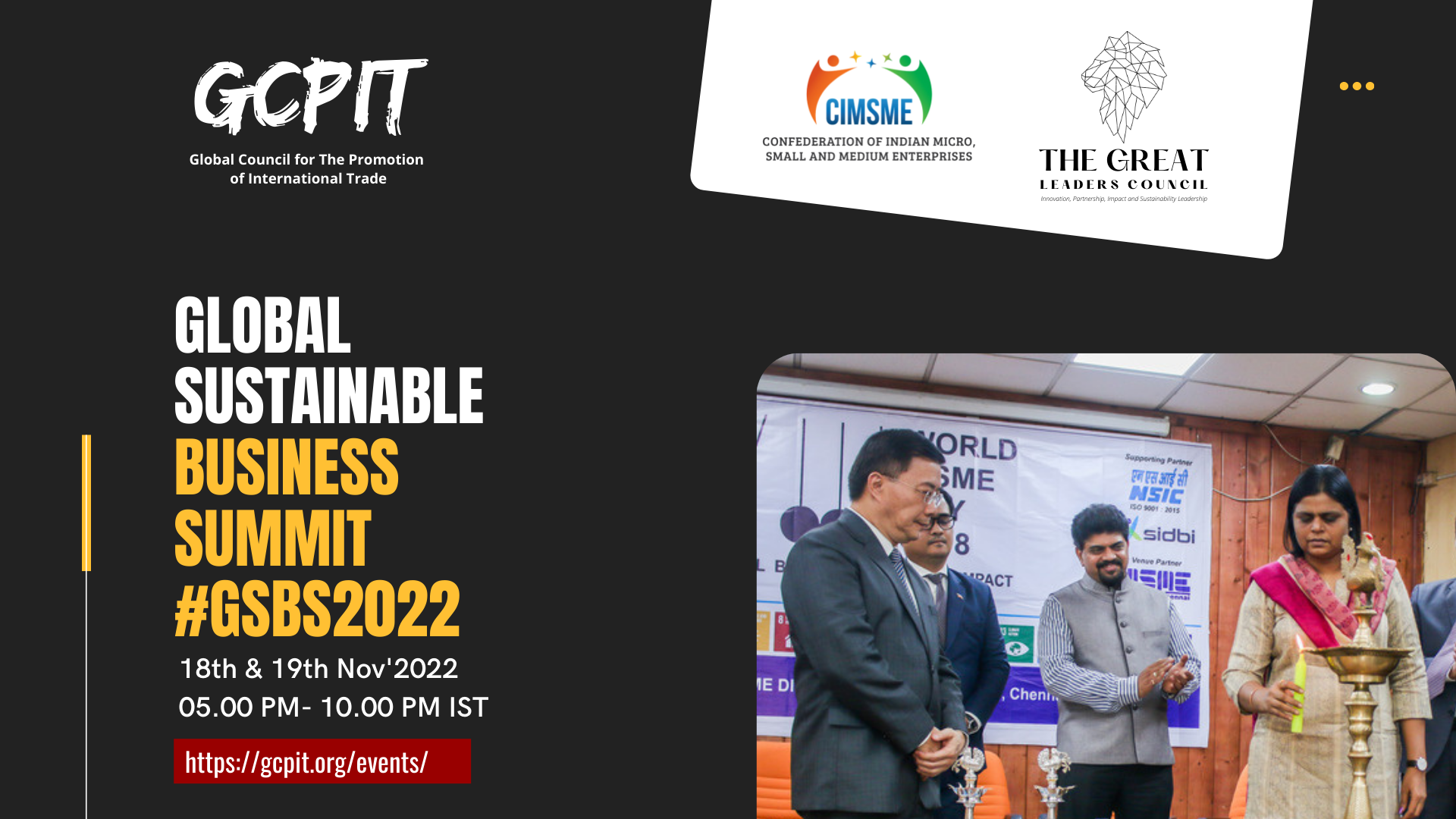
The Working as Global Sustainable Business Summit provides an opportunity for anyone interested in learning more about the circular economy, sustainable business and seeing how to take the first steps toward putting these principles into practise in the real world. Before 2050, we must ensure that our economy is diverse, thriving, and sustainable. This event is for any business that wants to spend a few hours learning more, taking stock of where they are on the path to sustainability, and considering how to accelerate faster towards this goal.
This will be followed by an examination of how these principles are applied in both small and large business structures.
Three days of Global Sustainable Business Summit are due to begin on 16th-18th December, with events including discussion on Sustainable Fabrics, Textiles and Fashions, Sustainable Food and Agriculture as well as the business of sustainability.
What You’ll Learn:
- How to drive revenue growth and profitability through social and environmental goals
- Methods of defining and measuring the business value of sustainable practices
- How do investors evaluate sustainable investments?
- Insights into developing replicable business models that incorporate investments
Sustainable Fabrics, Textiles and Fashions
Sustainable fashion is the movement and process of producing clothes, shoes, accessories, and other textiles using environmentally, socially, and economically responsible practises, also known as the triple bottom line pillars. As a result, sustainable fashion considers more than just product and fabric waste, instead taking a holistic approach to fashion and its interactions with all other systems – social, cultural, ecological, and financial. As a result, sustainable fashion takes into account not only users and producers, but all living species, as well as current and future generations.
Sustainable textiles are materials in which each input and output is significant. The materials used, processes involved, labourers’ quality of life, and the product’s afterlife are all evaluated and quantified. The materials and resources used in sustainable textiles are derived from renewable or recycled sources. Sustainable fabrics are produced with minimal environmental impact and can be classified in the following ways:
- Organic: Crops grown using bio-fertilizers and organic manures rather than pesticides, chemicals, or synthetic fertilisers.
- Eco-textiles: Products made with environmentally friendly methods and certified by organisations such as Oekotex and IFOAM
- Recycled and biodegradable: Biodegradable natural and synthetic fibres are broken down into pieces to make more textiles or fibres.
- Textile Processes and Sustainability: Fabrics and textiles are produced by taking into account all stages of production, from cultivation to printing and finishing. The less chemicals and effluents there are, the better the environment.
Sustainable Food and Agriculture
Our current food and agriculture systems are unsustainable on a global scale. They deplete soils, contribute to climate change through high greenhouse gas emissions, reduce biodiversity, contribute to starvation, and foster inequality through power concentration.
Agriculture must collaborate with rather than compete with nature. At the same time, a well-balanced and resilient food system should encourage healthy eating habits and pay farmers fairly. This will necessitate a comprehensive redesign, as well as a fresh relationship between consumers and the food they consume, as well as a reassessment of our food and ecosystems.
We must continue to create new solutions for agriculture, land use, and food security to feed the world’s rising population while also supporting national economies and rural livelihoods. At the same time, we must address resource competitiveness, environmental deterioration, and climate change.
To sustain a healthy population, we must enhance the availability of nutritious food in addition to increasing production.
Throughout the production process, the agriculture and food production industries have several chances for cost reductions and efficiency. Exploring the following aspects of the operations can help evaluate which areas should be changed to save money and increase efficiency:
- Reduce water use through increasing water recycling and reuse.
- Cogeneration capacity should be increased, as should energy derived from renewable sources.
- Improve the efficiency of waste heat recovery, steam generation, or combustion.
- Biofuels made from organic by-products (such as sugar cane, corn, and methane from manure) that are responsibly managed for energy Carbon credit sales
- Increase the adoption of fuel-efficient vehicles such as hybrids and electric automobiles.
- Greening the supply chain by addressing supplier resource efficiencies
Business of sustainability
According to a recent McKinsey, many companies are actively integrating sustainability principles into their businesses, and they are doing so by pursuing goals that go far beyond earlier concerns about reputation management—for example, energy conservation, green product development, and employee retention and motivation—all of which help companies capture value through growth and return on capital.
The areas where most executives say their companies are taking action are
- Reducing energy use in operations
- Reducing waste from operations
- Managing corporate reputation for sustainability
- Responding to regulatory constraints or opportunities
- Reducing emissions from operations
- Managing portfolio to capture trends in sustainability
- Reducing water use in operations
- Committing R&D resources to sustainable products
- Leveraging sustainability of existing products to reach new customers or markets
- Managing impact of products throughout the value chain
- Improving employee retention and /or motivation related to sustainability activities
- Mitigating operation risk related to climate change
- Achieving higher prices or greater market share from sustainable products

